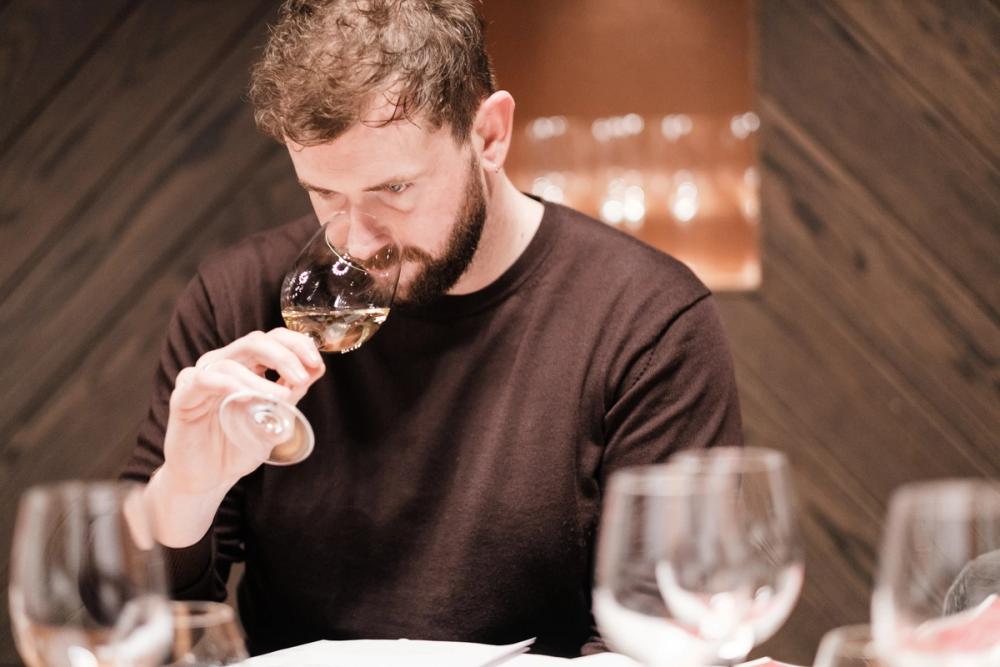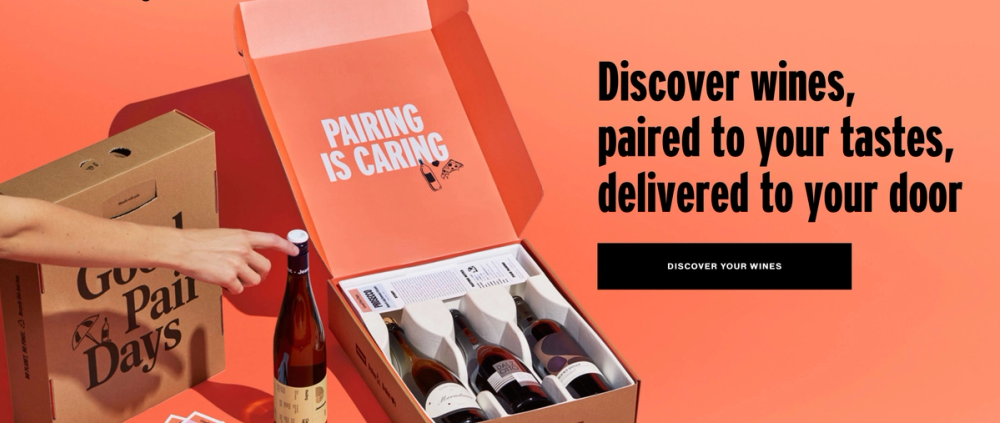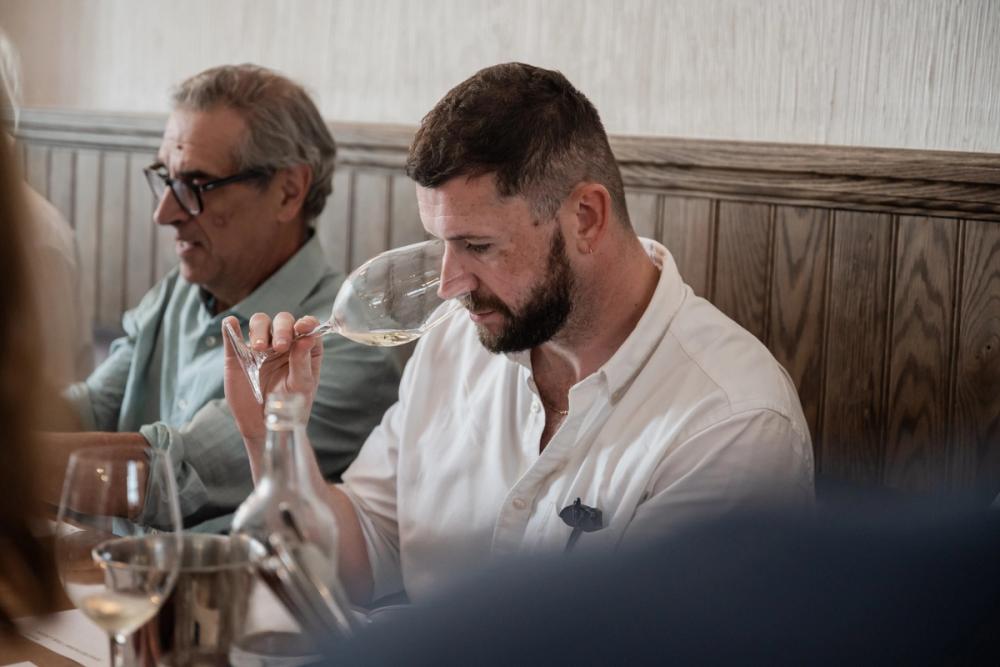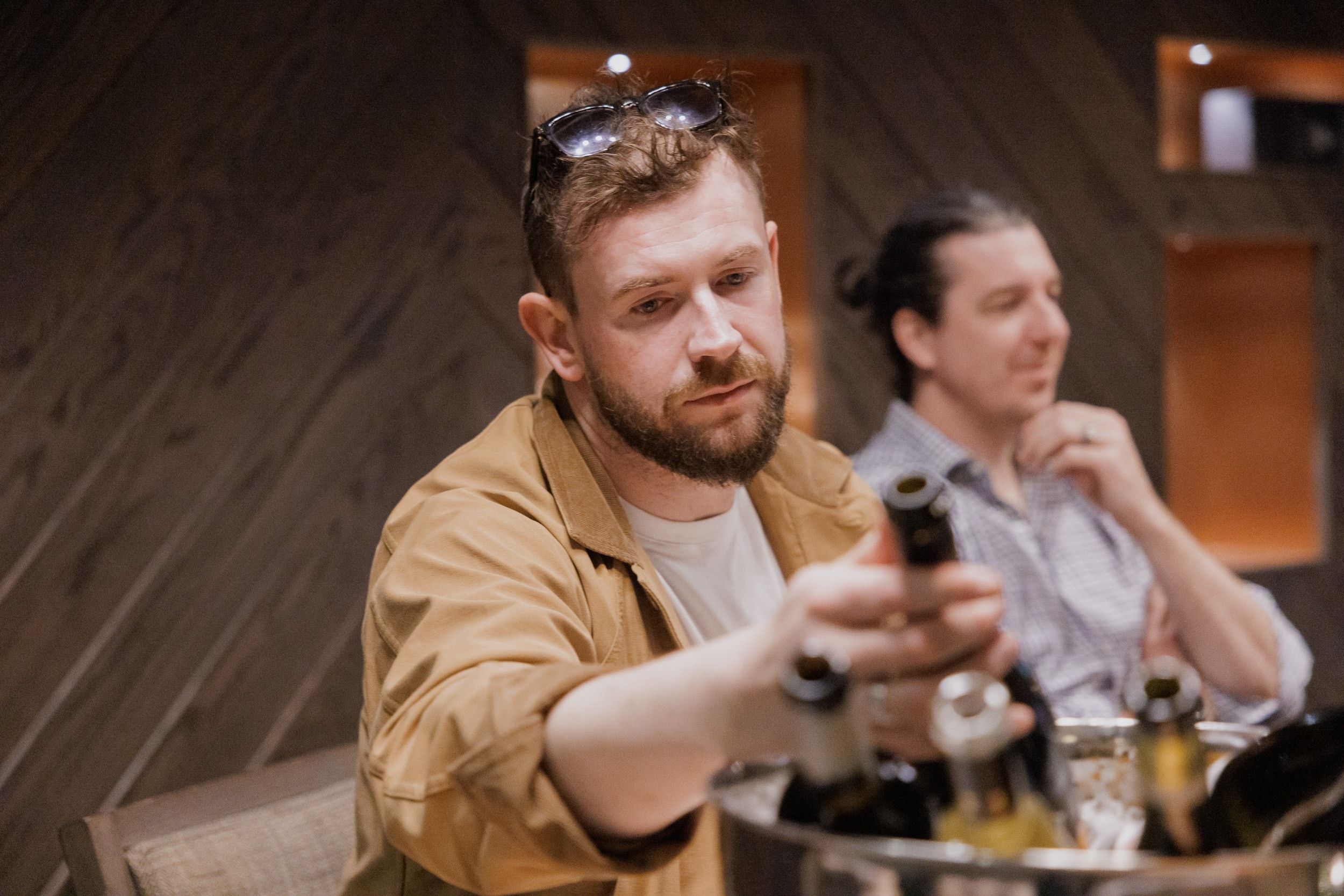As a wine importer you are clearly looking to bring in new producers to your range all the time - but it must be a delicate balance as another producer might mean another winery gets less attention...how do you tackle and address that balance?
In short, yes. I describe Good Pair Days' import model as very 'in-out'. Our business is set up to keep things fresh for our monthly subscribers, dictating that we need to constantly refresh the offering.
In terms of managing producers, as with anything in business, it’s just about being honest about things from the outset and managing expectations. But we don't get much agro from anyone, at the end of the way, we are helping to get their wines into the market, which as you know, is hard to do in the UK.
What criteria do you use when taking on a new producer and their wines?

Harry Crowther is keen to work with agents who can put him in touch with the right producer with wines for Good Pair Days' customers
It's not prescriptive at all, but personally I want to work with small, family-owned producers, solid green credentials and wines that speak of their sense of place. Also, working in the e-commerce sector, packaging is very important to us as well. Packaging, quality/terroir-driven and wines that punch above their weight price wise.
Also worth noting that it's important that they are well set up from a logistical standpoint, and have very clean practices when it comes to bottling etc. I have seen a fair amount of spoilage and poorly packs pallets over the past few years, this adds headache and time to multiple department's at each end of the process, something that could have been avoided had I vetted these elements of the business better - so you are constantly learning.
Of course, we don't want them to already be in the UK.
Will you take on all their wines - or have a strategy in terms of how many wines from a new producer you are willing to take on?
Totally case by case. Sometimes you need to separate the head form the heart. Other times you just go ham and bring it all in because you can't decide. It's nice to find a producer with great wines at the entry point, but are also making great wines above that, and can move through the gears in terms of quality.
That's when you can start working with more SKUs. But you'd be surprised how many producers are great at making clean, fresh €2 wines out of stainless steel, but as soon as they bring oak into the picture and make €5+ wines, totally mess it up.
It's good to start small and modest, then build up, instead of the other way around for sure. Under-promise and all that….
Repeat purchasing is heavily dictated by customer feedback at GPD, so much hinges on that, if the wines have done well, I will go back and potentially expand the range (if I haven't got carried away already and brought everything in!)
You clearly need to have your customers on board and willing to take on new wines and producers - how do you manage that and listen and talk to customers to get an idea of how interested they are in listing more wines from you?

Good Pair Days uses sophisticated algorithms to match the wines that Harry Crowther buys with the personal tastes of its customers
We are in the fortunate position that our algorithm takes care of the wine suggestions, meaning that if it's suggested to a customer, they are pretty much going to take it. The feedback also doubles up as an indicator of style preferences as well, we do a really good job here, our average wine rating across the company is constantly over 80% which we are delighted with.
If they take on a new producer do you have to accept that might mean they stop buying wines from another one of your producers?
Non-issue. It may happen, but we will always find the right wine for the right customer, and if we are signing up new customers at a good rate, there is plenty of customers for all of our producers.
Can you give us an example of a producer you have introduced to your range and how you have gone about doing that in order to get customer support?
A top example is Christopher Full, I think one of the hottest young talents in Germany at the moment. This guy is making killer wines with great packaging and sharp pricing. At this point we import the wine, and feature the wines across our email database (warm and non-warm). But again, the algorithm will take care of finding the right customers palate for them, so we don't really need to push the wines - if you get me.
What steps did you go through with that producer before you decided to take on their wines?
I tapped up a local agent whose palate I trust and asked them to put me in front of a few producers from Germany. We met, I wanted a full understanding of his background, experience, production volumes, philosophy etc. then we tasted and I liked the wines, so asked him to send to the UK for a second tasting, then a purchasing decision was made. Pretty straightforward really.
Do you use promotions and reduced pricing etc in order to introduce them to your customers ? If not what works best?

Harry Crowther is widely respected for both his tasting and commercial skills. Photo by Thomas Skovsende.
Never use a discount or promo model. Again, the algorithm takes care of pushing the wines through.
Is it harder to take on a new producer in terms of taking a risk - with all the extra admin and dutycosts - you have to make sure you are on to a winner from the off?
I think the biggest headache is the UK back labels that came into play a while ago. This is even more risky at the entry point, because you need to commit to label runs and MOQs etc. So if you commit to say, 10k bottles of a wine in order to justify a back label and the wine doesn't perform, then it’s not great. At the more premium end, the back label costs are less important from a procurement point of view.
What constitutes success?
Success for us is simply based upon how popular the wine is with our customer base. We incentivise them to rate wines, therefore we have a lot of data on how they perform. The question is not if it will sell, it's how it is rated.
How long do you take before deciding if a new producer and their wines are working in the trade?
We know within a few weeks if the wines are working well.
What is the average length of time it takes from initial talks and tastings to actually listing and selling wine into the trade?
Case by case and impossible to say. If there is a big gap that needs filling quickly, we will act fast, other times it’s about taking the time and getting under the skin of a region or style, to find the right fit.
Anything else to say?
I think it's worth acknowledging the importance of the middle men in the import game. The agents who help importers find new producers, they can often bridge that gap, act as a conduit and help speed up to process from start to finish.
* You can find out more about the wines that Harry Crowther buys at Good Pair Days website.






























